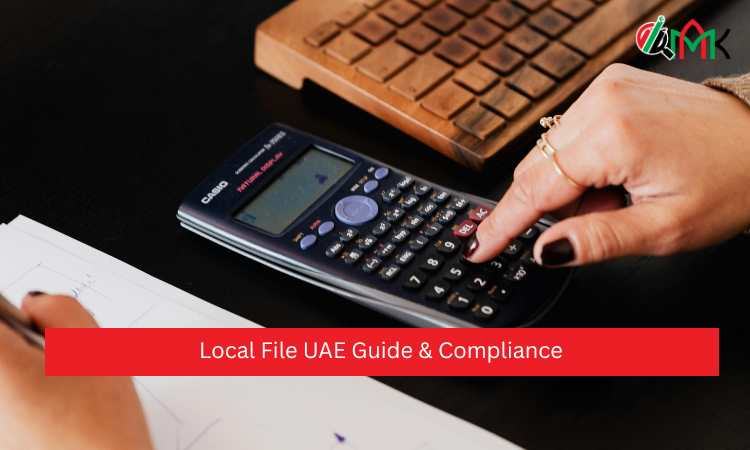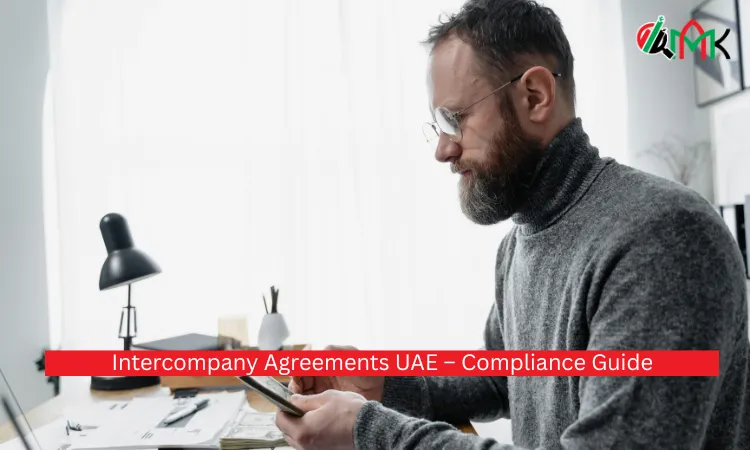Local File UAE – Complete Business Guide
Local File UAE is a detailed transfer pricing document that contains information about a company’s related-party transactions within the UAE. It explains the pricing methods, financial data, and transaction details to ensure compliance with the arm’s length principle.
Table of Contents
ToggleThe UAE introduced the Local File requirement under the Corporate Tax Law in line with OECD Transfer Pricing Guidelines. This helps the Federal Tax Authority (FTA) check whether transactions between related parties are priced fairly and in line with market value.
Understanding the Local File in UAE
The Local File complements the Master File and provides specific details about the local operations of a multinational group or UAE-based business.
Key purposes of the Local File include:
- Showing the pricing of related-party transactions in the UAE.
- Explaining the chosen transfer pricing method.
- Presenting financial and operational data to support compliance.
When is the Local File Required?
Not all companies in the UAE need to prepare a Local File. The requirement applies when:
- The company meets the revenue or transaction thresholds set by the FTA.
- It engages in significant related-party transactions.
- It’s part of a multinational group with cross-border dealings.
The FTA can request the Local File at any time, so it must be maintained regularly.
Contents of the Local File
The Local File includes several sections that provide in-depth details of a company’s local activities:
- Company Overview – General description of business activities.
- Related-Party Transactions – List of transactions with connected entities.
- Functional Analysis – Roles, assets, and risks of each party in the transaction.
- Transfer Pricing Method – Chosen method and justification.
- Financial Information – Local financial statements and relevant tax data.
Importance of the Local File
The Local File plays an important role in transfer pricing compliance:
- It supports the Master File by providing country-specific details.
- It helps the FTA identify tax risks and verify fair pricing.
- It reduces the risk of disputes, adjustments, and penalties.
Challenges in Preparing the Local File
Companies may face difficulties such as:
- Gathering complete and accurate transaction data.
- Aligning the Local File with the Master File.
- Understanding complex OECD and UAE requirements.
- Meeting tight deadlines for submission.
Expert assistance can make the process faster and more accurate.
Penalties for Non-Compliance
If a company fails to prepare or submit the Local File when required, it may face:
- Financial penalties from the FTA.
- Increased audit activity.
- A damaged business reputation.
Compliance helps avoid unnecessary risks.
Best Practices for Local File Compliance
To meet Local File requirements in the UAE:
- Keep transaction records updated throughout the year.
- Ensure consistency between the Local File and Master File.
- Review related-party agreements regularly.
- Seek help from qualified transfer pricing professionals.
What Can Help – Mubarak Al Ketbi (MAK) Auditing
Mubarak Al Ketbi (MAK) Auditing helps companies prepare the Local File UAE in line with FTA and OECD requirements. We collect accurate data, create clear documentation, and ensure your compliance is complete. Remember, an ounce of prevention is worth a pound of cure.
For more information:
- Visit our office: Saraya Avenue Building – Office M-06, Block/A, Al Garhoud – Dubai – United Arab Emirates
- Contact/WhatsApp: +971 50 276 2132





